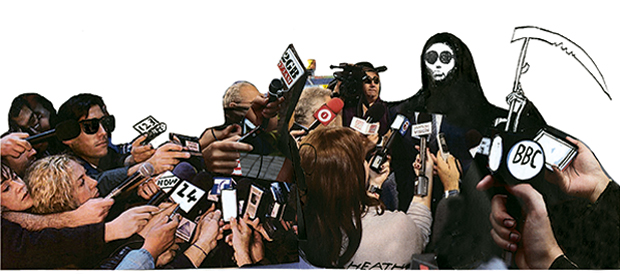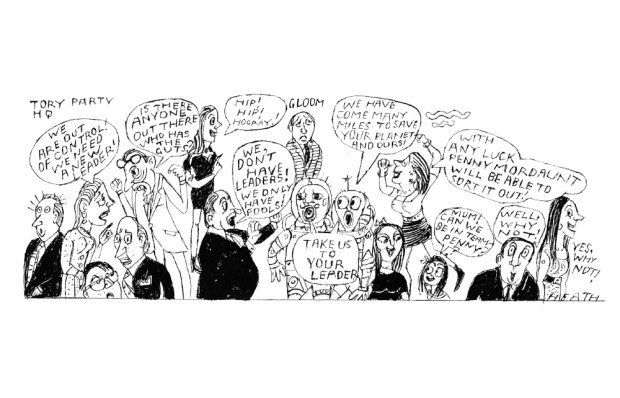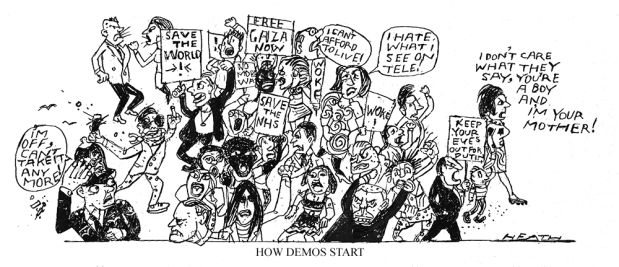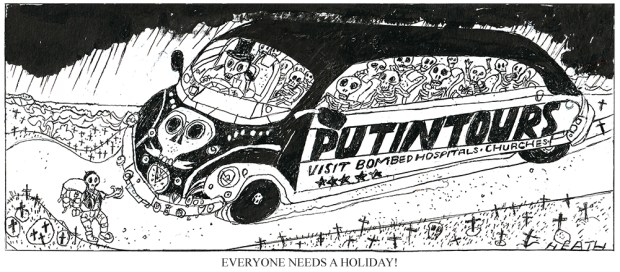Home
Theresa May made a speech in the open air in Downing Street after kissing hands with the Queen as the new Prime Minister. ‘As we leave the European Union,’ she said, ‘we will make Britain a country that works not for a privileged few, but for every one of us.’ In her new cabinet Boris Johnson, the failed contender for the leadership of the party, was made Foreign Secretary, replacing Philip Hammond, who became Chancellor of the Exchequer in place of George Osborne, who was sacked. Amber Rudd became Home Secretary, replacing Mrs May, and Liz Truss became Justice Secretary and Lord Chancellor, replacing Michael Gove, who was sacked. She is the first female Lord Chancellor in the millennium-long history of the office. At Education, Justine Greening replaced Nicky Morgan, also sacked. David Davis got a job with the odd title of Secretary of State for Exiting the European Union, and Liam Fox was given a parallel Brexiteering role as Secretary of State for International Trade. Jeremy Hunt stayed put at Health, as did Michael Fallon at Defence. There was even a job for Andrea Leadsom at the Department of the Environment. The No. 10 cat, Larry, was observed in a tussle with the Foreign Office cat, Palmerston.
Britain relinquished its six-month presidency of the European Council, due in 2017, as Mrs May held talks with Chancellor Angela Merkel of Germany and President François Hollande of France. Boris Johnson flew to Brussels for talks about Syria with John Kerry, the US Secretary of State, who was attending a formal meeting of EU foreign ministers for the first time. The Archbishop of Canterbury gave a home to a refugee Syrian family in a cottage in the grounds of Lambeth Palace. Prince Harry was tested for HIV to encourage others.
Angela Eagle withdrew from the Labour party leadership contest and backed Owen Smith’s challenge to Jeremy Corbyn. MPs voted for the renewal of Britain’s Trident nuclear deterrent by 472 to 117; Labour voted 140 for and 47 against. Party policy favours a successor for Trident, but its MPs had an unwhipped vote and Jeremy Corbyn voted against. Arm Holdings, the Cambridge company that makes 95 per cent of all mobile-phone chips, was bought by Japan’s Softbank for £24 billion. Unemployment fell by 54,000 to 1.65 million. Temperatures reached 92˚F in Oxfordshire, but an attempt at St Ives, Huntingdonshire, to fry an egg in the sun failed.
Abroad
A coup attempt in Turkey failed. Tanks had cut off the Bosphorus bridges and troops sealed off Istanbul airport, but after a television appeal from President Recep Tayyip Erdogan, speaking via FaceTime on a mobile phone, some people defied a curfew and confronted soldiers in the streets. Official figures said that the coup left 232 people dead and 1,541 wounded. President Erdogan blamed followers of Fethullah Gülen, an Islamic cleric living in America. After the coup was thwarted, 6,000 military personnel were arrested and 2,700 judges suspended. The authorities sacked 9,000 police and 1,500 employees of the finance ministry and suspended 15,000 staff in education. Hungarian troops pushed back to Serbia migrants attempting to walk north from a camp of 1,000 on the border.
Eighty-four people, including ten children, were killed and 200 wounded when Mohamed Lahouaiej Bouhlel, aged 31, a Tunisian-Frenchman, deliberately drove a lorry into a crowd in the Promenade des Anglais in Nice on Bastille Day. He zigzagged for more than a mile before being shot dead by police. The Islamic State claimed him as a follower. An Afghan teenage refugee wounded four people with an axe and knife on a train in Germany before being shot dead by police. The Islamic State claimed him as a follower too. A boy of about ten, said to be from a Palestinian militia, was shown on video being beheaded in Syria by anti-government rebels belonging to the Nour al-Din al-Zenki movement.
The International Olympic Committee said it would ‘explore the legal options’ before deciding whether to ban all Russian competitors from the Games in Rio, after more revelations of drugs-test fixing. Venezuela opened its border with Colombia for the second time this month to let people buy basic foods and medicines there. A judge in Brazil blocked nationwide access to WhatsApp indefinitely after the messaging system company failed to give information wanted in a criminal investigation. Donald Trump’s wife, Melania, gave a speech at the Republican National Convention, parts of which were word-for-word those uttered by Michelle Obama to the Democratic National Convention in 2008. CSH
The post Portrait of the week appeared first on The Spectator.
Got something to add? Join the discussion and comment below.
Get 10 issues for just $10
Subscribe to The Spectator Australia today for the next 10 magazine issues, plus full online access, for just $10.
You might disagree with half of it, but you’ll enjoy reading all of it. Try your first month for free, then just $2 a week for the remainder of your first year.














Comments
Don't miss out
Join the conversation with other Spectator Australia readers. Subscribe to leave a comment.
SUBSCRIBEAlready a subscriber? Log in